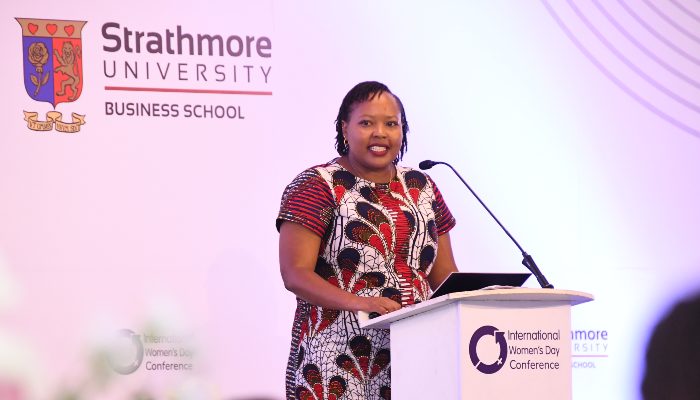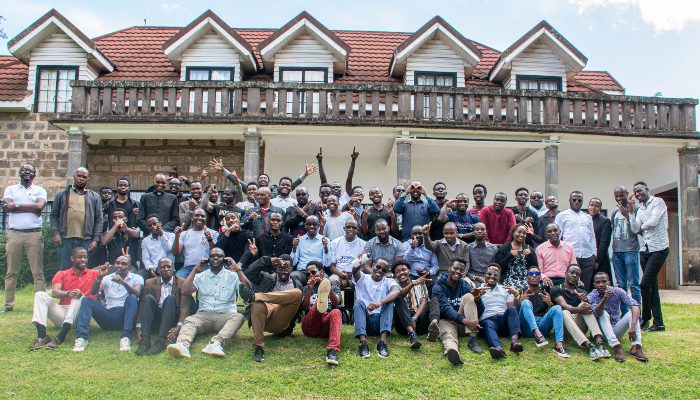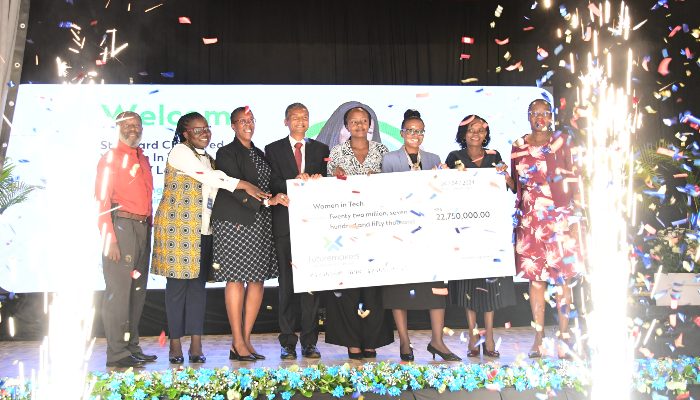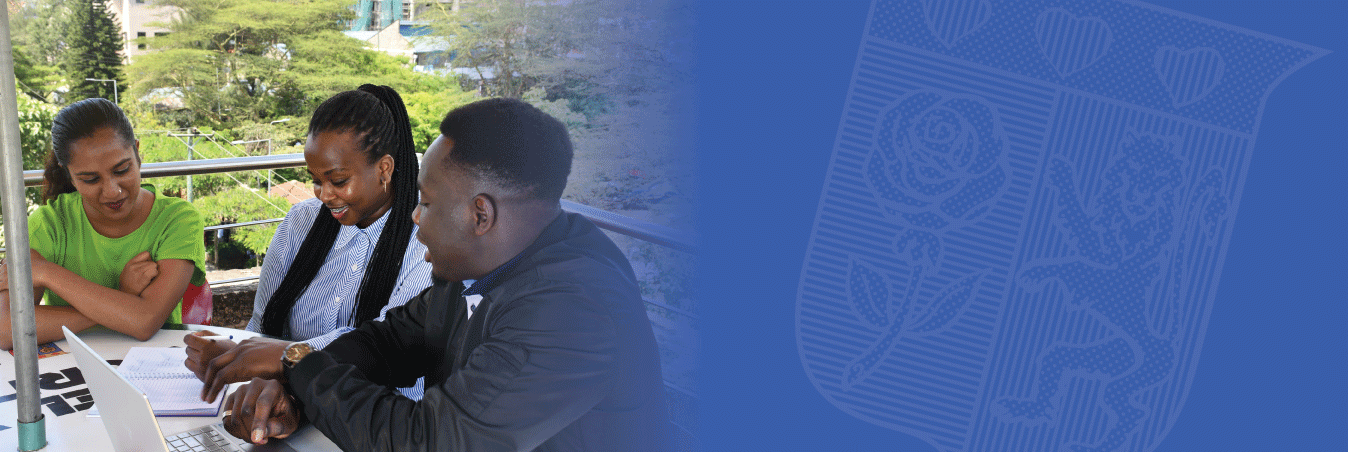The promising morning of 14th September, The School of Tourism and Hospitality brought together industry experts, partners, faculty members and students to discuss the future of work in the tourism and hospitality industry. Why did the day look promising? As I sipped a hot cup of coffee to dispel the morning cold before diving into the day’s discussions, the atmosphere was filled with chants geared towards fostering connections, catching up with old friends in industry and providing insights to the topic of the day.
At exactly 8:00 a.m, the room at the TransCentuary auditorium at the Strathmore University Business School was almost full of guests tucked in the blue and red colored seats, ready to get the answers on the topic of the day.
“My best moments on campus are when I see industry leaders coming in and going out. It means we are training our students to be at par with the industry and beyond,” Dr David Chiawo, an ecologist and Dean, School of Hospitality and Tourism, said in his opening remarks.
In his preamble, Dr Chiawo emphasized that it is important for the hospitality and tourism industry to keep remodeling. This is only possible when industry works hand in hand with academia, while using technology to scale.
What is the future of work in the hospitality and tourism industry?
The keynote speaker of the day, Mr Mike Macharia, CEO Kenya Hotel Keepers, was keen to explain the shift the tourism and hospitality industry is undergoing .
“We need to ask ourselves: what does the employer of the future want? And vice versa, what does the employee of the future want?”
A few takeaways from Mr Macharia’s speech:
- Technology is creating new opportunities in the industry: digital marketers, social media managers, and sustainability champions.
- There is a need to have multiple skills to be relevant in the work environment.
- The millennial who is the current employee is looking for a decent and enabling work environment. There is a need to integrate work with life.
The round table discussions that was moderated by Dr Fredrick Odur offered valuable insights on the day’s topic. Present in the discussions were: Ms Mbithe Wambua, Director of Talent and Culture at the Norfork; Mr Mtaana Mwahunga, Operations Manager at Jacaranda Hotels; and Dr Mary Mutisya, Chairperson and Assistant Professor, Tourism and Hospitality, USIU Africa .
The takeaways from the round table session include:
- Digital literacy is a valuable key skill in the industry
- The industry must adopt a sustainability-focused mindset
- Our strength lies in soft skills; we still need to say ‘good morning’ to our guests
- Despite the disruptive potential of technology and its capacity to drive innovations, the tourism and hospitality industry still requires human interaction.
- Exploring the realm of mental health is essential when working with millennials. We need to create an enabling environment for the employees and integrate work seamlessly into their life.
“A guest will not remember how good the coffee was, but they will remember how good the person who served the coffee was,” Mr Mtaana Mwahunga.
The insightful morning came to a close at 11:00 a.m. with more interactions at the Atrium of the Strathmore Business School, and of course some selfies and laughter.
This article was written by Lynette Naisoi.
What’s your story? We’d like to hear it. Contact us via communications@strathmore.edu
ALSO CHECK OUT
See more news-

Stratizens Triumph at Olympia Invitational Debate Tournament* 11,Apr,2024
The Strathmore Debate Society clinched monumental victories at the prestigious Olympia Invitational,
-

Bridging gender gap in healthcare* 09,Apr,2024
In Kenya, women remain underrepresented in senior positions across many sectors, including
-

Financial Literacy – What students need to know* 09,Apr,2024
With the fresh wave of high school graduates stepping into the threshold
-

THE TIGONI EXPERIENCE* 05,Apr,2024
It all started with receiving an invitation to the 2024 Tigoni Leadership
-

Even Wars have Laws: A Simulation of War* 05,Apr,2024
“Even Wars Have Laws,” Mr. Allan Mukuki, lecturer at the Law School,
-

Cohort 7 of Women in Tech Launched* 04,Apr,2024
@iBizAfrica – Strathmore University in partnership with Standard Chartered Bank has launched
-

Strengthening Bonds: Strathmore Alumni Reunion in Uganda* 04,Apr,2024
On the evening of March 1, 2024, a significant gathering unfolded at
-

Nurturing Lifelong Connections: A Journey Beyond Graduation* 04,Apr,2024
Friendships forged during school life burn bright long after the caps are
-

Embracing Sustainability in Mental Health* 04,Apr,2024
We have inherited a world that was once cared for, at least
-

Book review – Hop, Skip and Jump* 03,Apr,2024
“I am thirteen years old. But war knows nothing about age because

